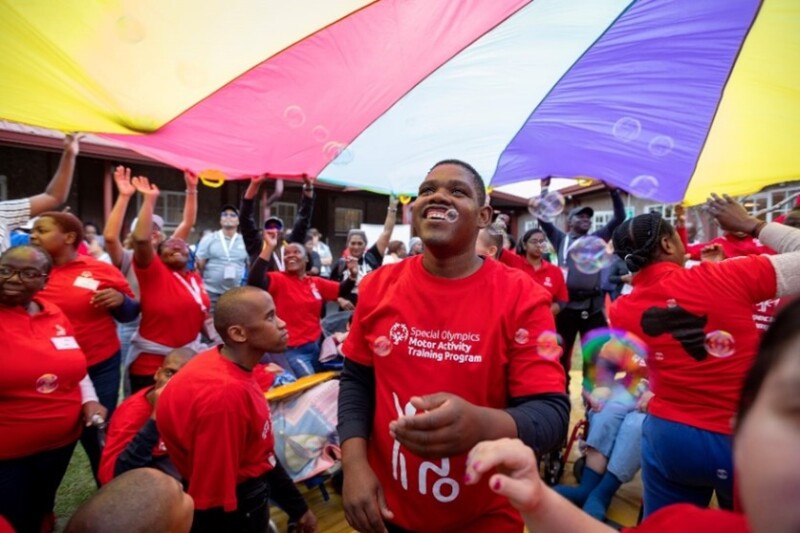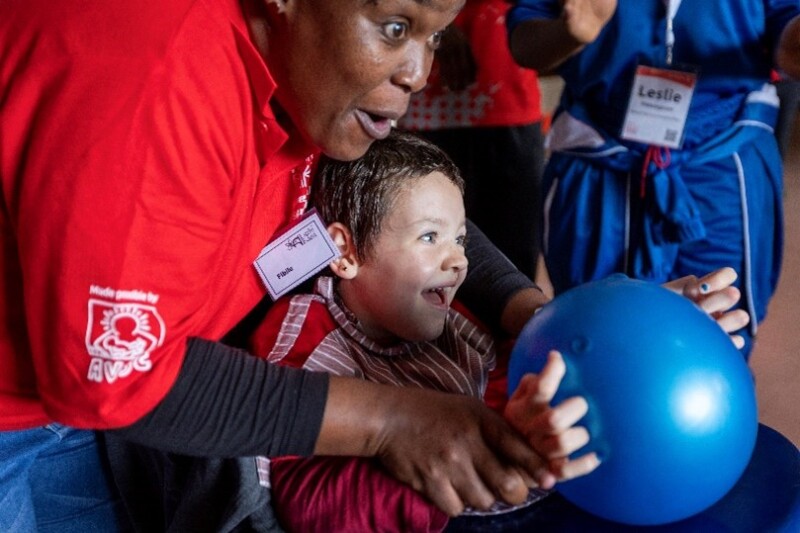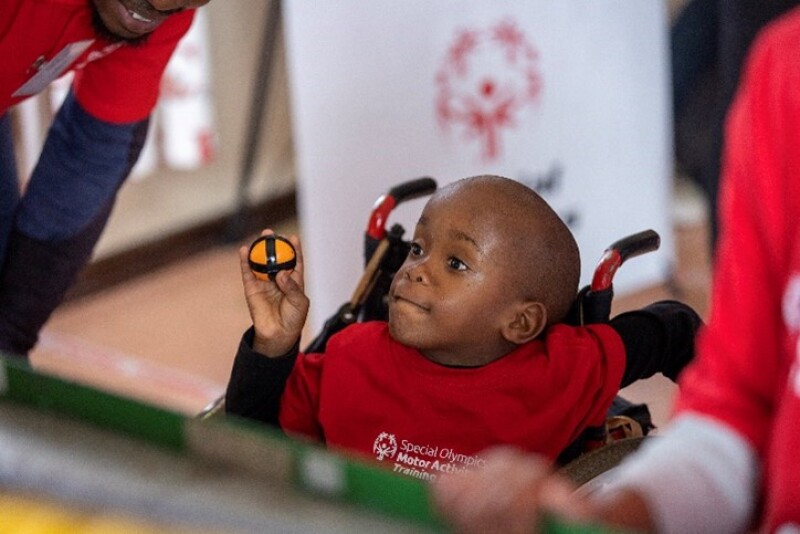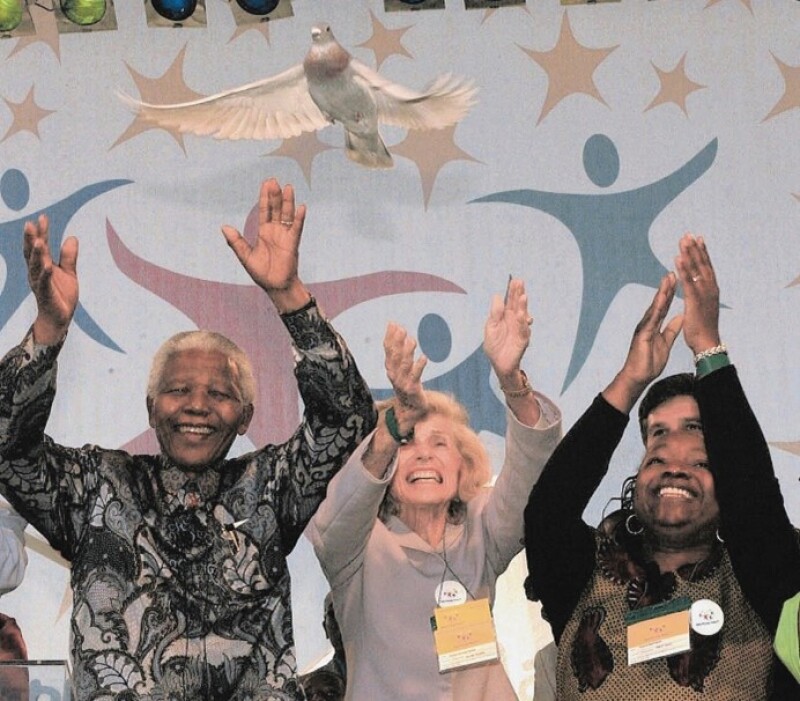In doing this, Special Olympics Africa Region partnered with Little Eden Society (Little Eden) to expand sport opportunities for 300 people with intellectual disabilities in South Africa.
Familiar with inclusion, Little Eden is a permanent residence in Johannesburg, South Africa that provides lodging, food, education, clothes, and resources to 300 people with intellectual disabilities. With residents aged from 4 to 69-years-old, the program is split into two houses in the local area, each catering to a different learning range.
Earlier this year, Special Olympics Africa (SOA) staff attended the Special Olympics Africa Regional Conference where they went through education and training on the practices currently used by Special Olympics’ global Motor Activity Training Program (MATP) and visited Little Eden to do a practical learning session with their residents.

MATP is a Special Olympics movement-based sport program for athletes with profound intellectual disabilities who have high support needs. Focusing on achieving personal bests, the program gives athletes the opportunity to practice skills that will prepare them for sport without comparison to others.
Similar to MATP, Little Eden highly focuses on their “stimulation program” which is their method of engaging residents in physical and intellectual learning opportunities, stimulating their bodies and minds.

Little Eden Society’s Care Centre Manager, Elvira Rohrbeck, shared, “Stimulation is important because it is not only fun for our residents, but they are working on their physical fitness and sport skills which are instrumental for their overall growth.”
Identifying the similarities in MATP and their own stimulation program, Little Eden staff saw insight into MATP sessions learning how they are made up of skill stations where athletes take part in sport related activities that develop their mobility, dexterity, striking, kicking and balance.
Rohrbeck continued, “Programs like MATP are instrumental in helping our residents develop themselves, their team spirit, their sport and physical skills, and learning skills.
“Our staff are being trained in MATP education so that they can be upskilled in new trainings and techniques, learning new things from Special Olympics they can now transfer over and use at Little Eden.”
Adaptive sport activities through training sessions as part of Special Olympics’ MATP and Little Eden’s stimulation program, lower the entry barriers to sport making it possible for anyone, at any level, to participate. These lower barriers equalize the playing field, making athletes feel empowered and capable at any level of competition.

“Sport has the power to change the world. It has the power to inspire. It has the power to unite people in a way that little else does.”
Nelson Mandela
Sport allows people to be part of something greater than themselves, all while building a more inclusive, accepting world where everyone can be celebrated and uplifted for being themselves—a historically important endeavor in South Africa.
The country is no stranger to the battle of creating a more inclusive world. Nelson Mandela spent his life promoting equality, freedom, and democracy for all and this is still something being fought for today.
Mandela openly battled the apartheid system, apartheid translating to ‘separateness’ in Afrikaans, set in place to outcast and dehumanize Black and other non-white populations in South Africa that lasted 46 years. During this time, people with disabilities, especially those from the Black community, also faced extreme marginalization and discrimination.
Though the apartheid rule ended in 1994 with Mandela’s election as President of South Africa, the country is still facing the repercussions of those laws to this day. Those communities marginalized then, have still had to fight for their place in the world—to be seen and treated as equals, to be respected, and to have the same rights as anyone else.

Following in his footsteps and carrying on his legacy of inclusion, Special Olympics and many other people and organizations are leading the inclusive movement that Nelson Mandela spent so much of his life working towards.
Each leader is building towards this goal in a different way, through different means, but all with the sole objective of an inclusive world for all where everyone is equal and valued for being themselves.
Today, on Mandela Day, Special Olympics honors Nelson Mandela and his bravery to fight for and build a more inclusive world for all.
